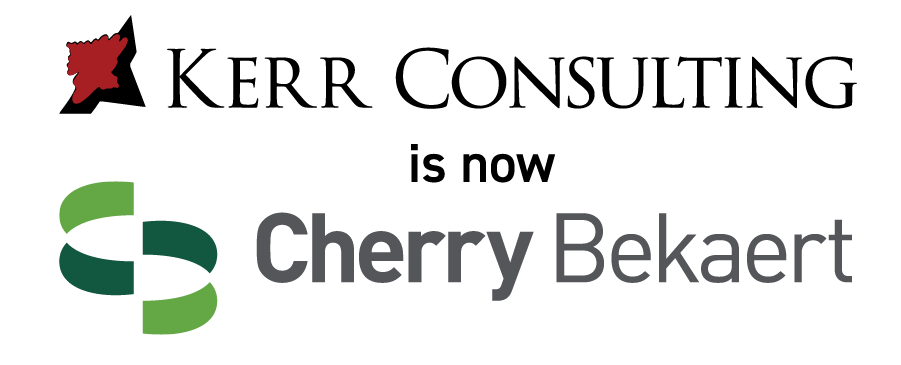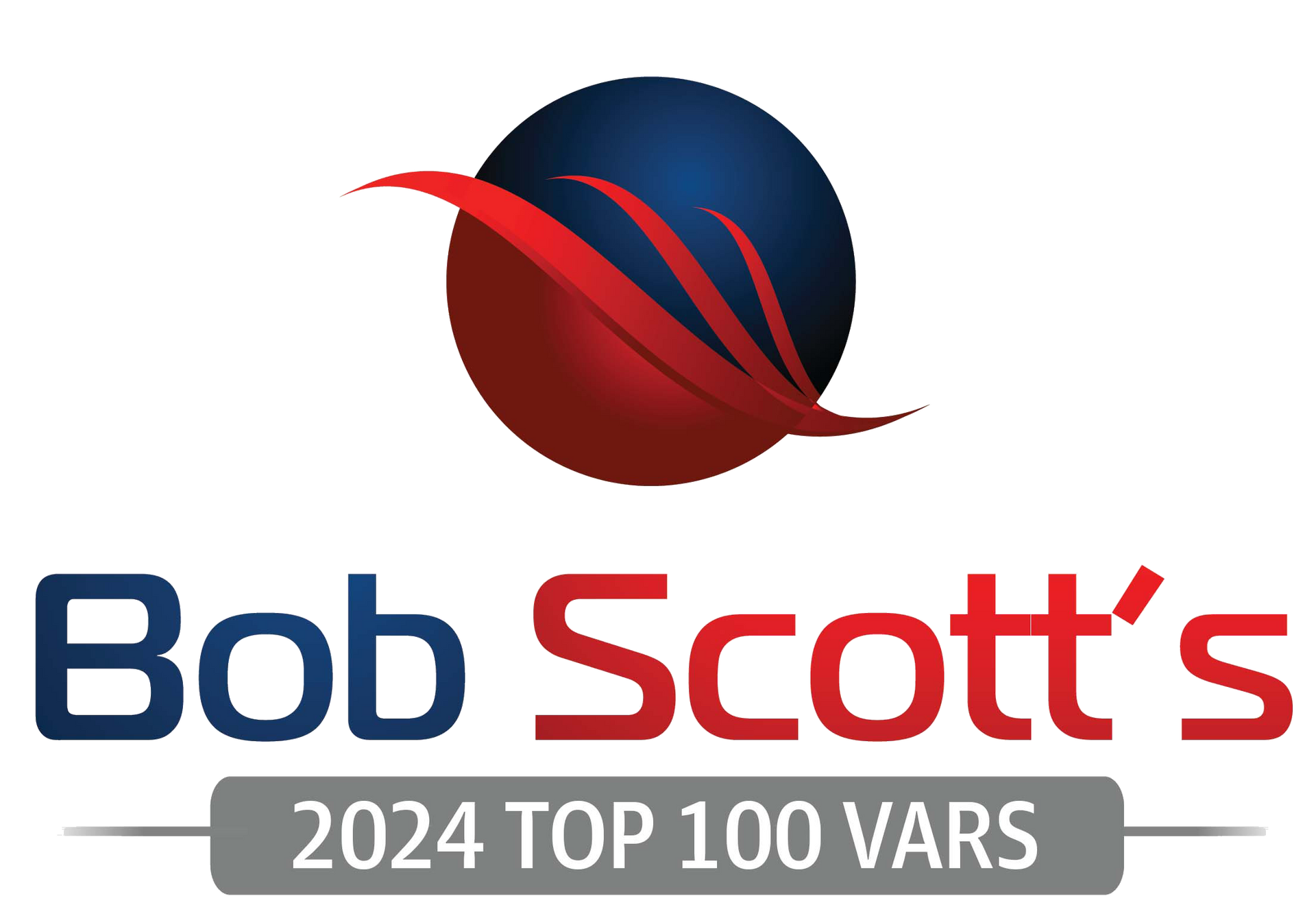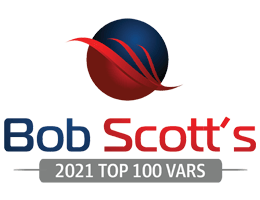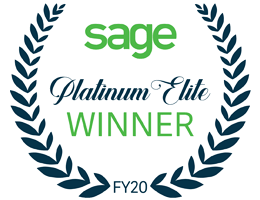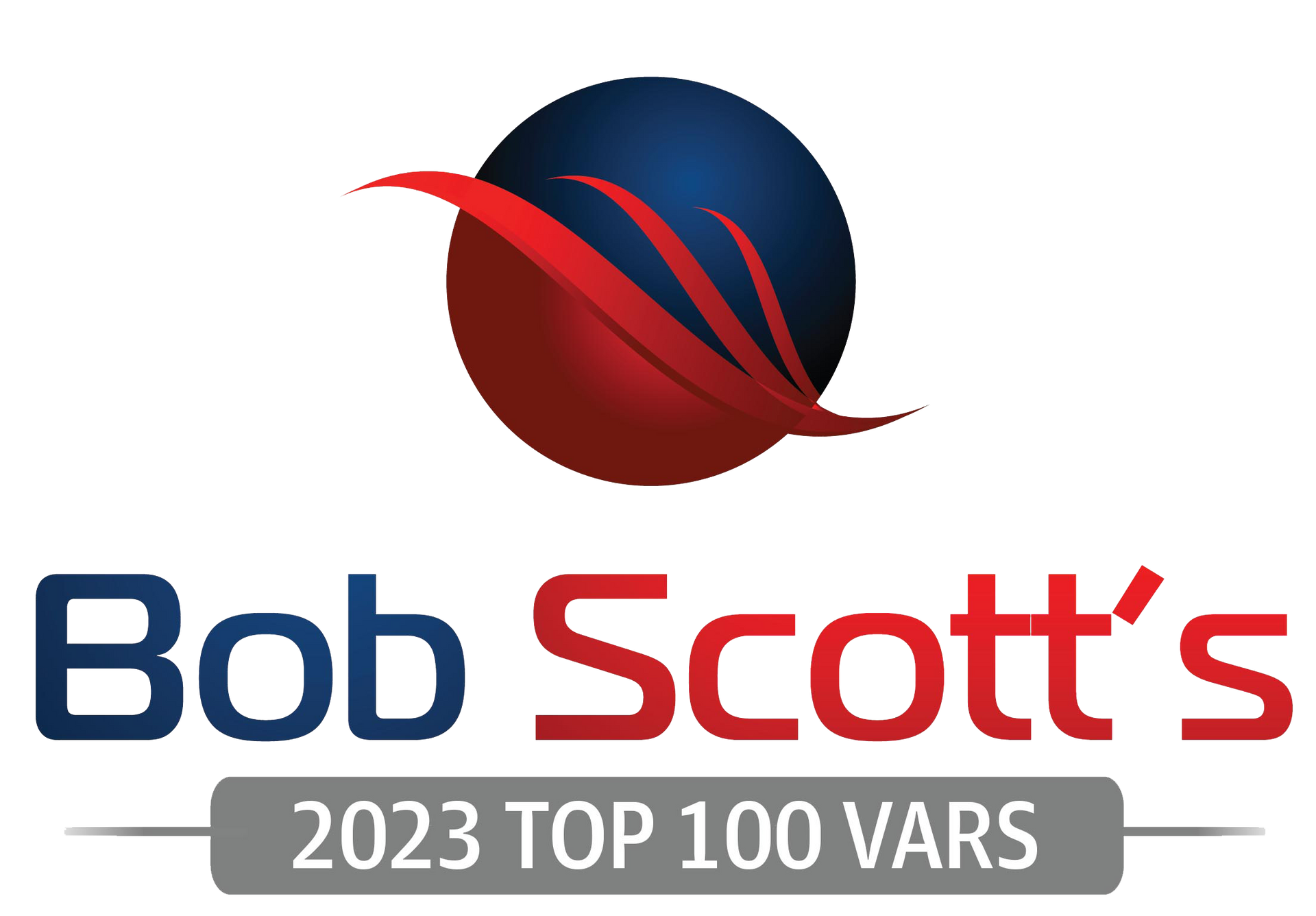Streamline Your Processes with Advanced Food Manufacturing Software
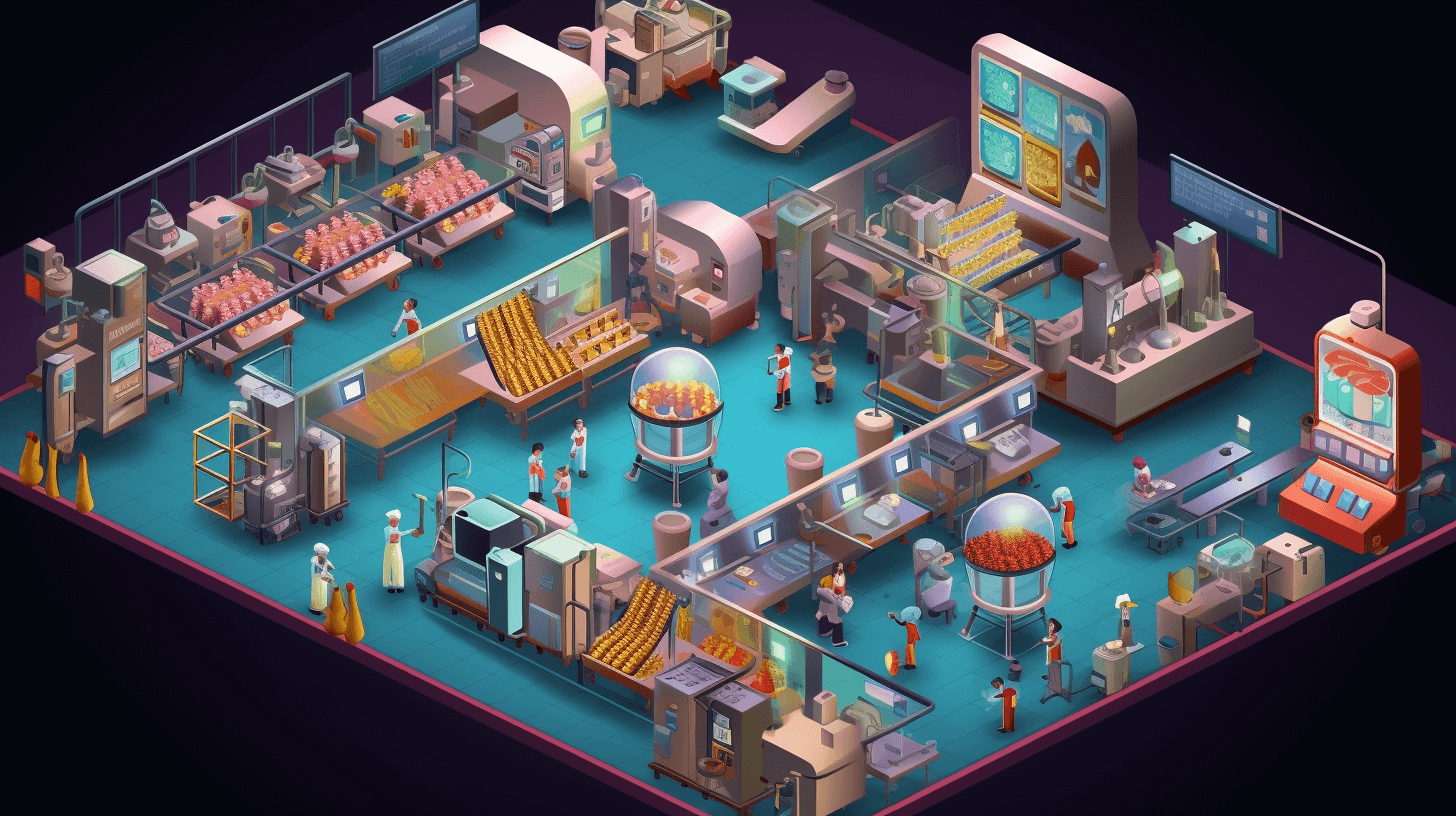
Food manufacturing companies face unique challenges in managing their complex operations efficiently. In today's fast-paced industry, staying ahead of the competition requires streamlined processes, precise inventory management, and adherence to strict quality and compliance standards. This is where food manufacturing software plays a crucial role. With its advanced features and tailored functionalities, food manufacturing software empowers businesses to optimize production, ensure traceability, enhance quality control, and achieve overall operational excellence. In this article, we will explore the benefits, key features, and industry-specific applications of food manufacturing software, shedding light on how it can revolutionize your food manufacturing operations.
Understanding Food Manufacturing Software
Food manufacturing software is a specialized technology solution designed to address the unique challenges and requirements of the food and beverage industry. It encompasses a range of software applications and tools that streamline and optimize various aspects of the food manufacturing process, from production planning to quality control and compliance.
Definition and Purpose
Food manufacturing software refers to a suite of digital solutions that enable food manufacturers to manage and control their operations efficiently. It provides a centralized platform for automating and integrating critical processes, data management, and decision-making. The primary purpose of food manufacturing software is to enhance productivity, ensure product quality and safety, achieve regulatory compliance, and drive overall operational excellence in the food and beverage manufacturing sector.
Importance in the Food and Beverage Industry
In the fast-paced and highly regulated food and beverage industry, the importance of food manufacturing software cannot be overstated. This technology empowers manufacturers to meet the industry's stringent standards, cope with complex supply chains, optimize resource utilization, and maintain a competitive edge. By utilizing advanced features and functionalities tailored to the unique needs of food production, manufacturers can streamline operations, reduce costs, and deliver high-quality products to the market.
Food manufacturing software plays a crucial role in helping businesses navigate challenges such as inventory management, recipe formulation, production planning, quality assurance, and compliance with regulatory standards. It provides real-time visibility into the production process, facilitates effective decision-making, and enables proactive management of resources, resulting in improved efficiency and profitability.
How Food Manufacturing Software Differs from Generic Manufacturing Software
While both food manufacturing software and generic manufacturing software share some similarities, it's important to note their key differences. Generic manufacturing software is designed to cater to a broad range of manufacturing industries, whereas food manufacturing software is specifically tailored to the unique requirements of the food and beverage sector.
Food manufacturing software incorporates industry-specific functionalities such as recipe and formulation management, allergen tracking, nutritional analysis, and compliance with food safety regulations. It addresses the intricacies of ingredient management, batch tracking, shelf-life management, and lot control that are crucial in the food manufacturing industry.
Additionally, food manufacturing software often integrates with other systems and tools specific to the food industry, such as ERP (Enterprise Resource Planning) systems, food labeling software, and quality management systems. These integrations enable seamless data flow, improved collaboration, and enhanced control over the entire manufacturing process.
By understanding these distinctions, food manufacturers can make informed decisions when choosing software solutions that align with their specific needs, ensuring optimal operational efficiency and compliance within the unique requirements of the food and beverage industry.
Key Benefits of Food Manufacturing Software
Enhanced Inventory Management
In the fast-paced food manufacturing industry, effective inventory management is crucial for maintaining smooth operations and meeting customer demands. Food manufacturing software provides several key benefits in this area:
- Real-Time Inventory Tracking:
- Utilizing food manufacturing software enables real-time monitoring of inventory levels, providing accurate and up-to-date information on stock availability.
- This real-time visibility helps businesses make informed decisions regarding procurement, production planning, and order fulfillment.
- Minimizing Stockouts and Overstocking:
- With food manufacturing software, companies can optimize their inventory levels to minimize the occurrence of stockouts (insufficient inventory) or overstocking (excess inventory).
- By having a clear view of inventory quantities, businesses can ensure that they have the right amount of raw materials and finished goods, reducing the risk of production disruptions or wastage.
- Automated Reordering and Purchase Management:
- Food manufacturing software can automate the reordering process by setting up predefined inventory thresholds.
- When stock levels fall below the defined threshold, the software can automatically generate purchase orders or trigger alerts to ensure timely replenishment, streamlining the procurement process and reducing manual effort.
Streamlined Production Planning
Efficient production planning is essential for optimizing resources, meeting customer demands, and maximizing productivity. Food manufacturing software offers the following advantages in production planning:
- Demand Forecasting and Planning:
- Food manufacturing software can analyze historical sales data, market trends, and other factors to provide accurate demand forecasts.
- By having insights into anticipated demand, businesses can plan their production schedules, raw material procurement, and resource allocation effectively, minimizing the risk of underproduction or overproduction.
- Optimal Resource Allocation:
- With food manufacturing software, manufacturers can allocate resources, such as equipment, labor, and production lines, based on demand forecasts and production requirements.
- This optimization ensures efficient utilization of resources, reduces downtime, and increases overall productivity.
- Efficient Production Scheduling:
- Food manufacturing software enables streamlined production scheduling by optimizing the sequencing of production orders and managing dependencies between tasks.
- By automating the scheduling process, businesses can minimize idle time, bottlenecks, and production delays, resulting in improved efficiency and on-time delivery.
Improved Quality Control and Compliance
Maintaining high quality and compliance with regulatory standards is paramount in the food manufacturing industry. Food manufacturing software offers the following benefits in quality control and compliance:
- Automated Quality Checks and Inspections:
- Food manufacturing software can automate quality checks and inspections at various stages of the production process, ensuring consistency and adherence to quality standards.
- Automated checks reduce human error, improve accuracy, and facilitate prompt identification and resolution of quality issues.
- Traceability and Lot Tracking:
- Food manufacturing software provides robust traceability features, allowing manufacturers to track the movement of ingredients and finished products throughout the supply chain.
- By capturing and storing detailed information about each lot or batch, businesses can quickly trace the origin of ingredients, identify potential quality issues, and facilitate targeted recalls if necessary.
- Compliance with Regulatory Standards (e.g., FDA, HACCP, ISO):
- Food manufacturing software helps ensure compliance with industry-specific regulations and standards, such as those set by the FDA (Food and Drug Administration), HACCP (Hazard Analysis Critical Control Point), and ISO (International Organization for Standardization).
- The software provides tools and functionalities to facilitate documentation, reporting, and adherence to regulatory requirements, reducing the risk of non-compliance and associated penalties.
Efficient Recipe and Formulation Management
Effective management of recipes and formulations is vital in the food manufacturing industry. Food manufacturing software offers the following advantages in this area:
- Recipe Version Control and Standardization:
- With food manufacturing software, businesses can maintain a centralized repository of recipes and formulations, ensuring version control and standardized production processes.
- This feature allows for consistent product quality, reduces the risk of errors, and simplifies the scaling of recipes for different batch sizes.
- Allergen and Nutritional Information Management:
- Food manufacturing software enables accurate tracking and management of allergen information and nutritional data for products.
- By maintaining comprehensive and up-to-date information, manufacturers can ensure regulatory compliance, provide accurate labeling, and cater to the needs of consumers with specific dietary requirements.
- R&D Collaboration and New Product Development:
- Food manufacturing software facilitates collaboration between research and development teams, enabling efficient communication and sharing of information.
- This collaboration streamlines the process of developing and introducing new products to the market, ensuring seamless coordination between various departments involved in the product development lifecycle.
Cost Optimization and Waste Reduction
Food manufacturing software offers significant opportunities for cost optimization and waste reduction, leading to improved profitability. The following benefits can be realized:
- Accurate Costing and Margin Analysis:
- Food manufacturing software enables businesses to accurately calculate the cost of production, considering factors such as raw materials, labor, energy, and overhead expenses.
- With precise costing information, manufacturers can analyze margins, identify cost-saving opportunities, and make informed pricing decisions.
- Minimizing Material Waste and Losses:
- By optimizing production processes, tracking inventory levels, and implementing efficient batch management, food manufacturing software helps minimize material waste and losses.
- This reduction in waste contributes to cost savings and aligns with sustainability objectives.
- Identifying Process Improvement Opportunities:
- Food manufacturing software provides valuable insights through data analytics and reporting functionalities.
- Manufacturers can analyze production data, identify bottlenecks, inefficiencies, and areas for improvement, and implement targeted process optimization initiatives.
By leveraging the key benefits offered by food manufacturing software, businesses can enhance inventory management, streamline production planning, improve quality control and compliance, efficiently manage recipes and formulations, and optimize costs while reducing waste. Adopting a comprehensive and tailored software solution empowers food manufacturers to thrive in a competitive industry, deliver high-quality products, and achieve operational excellence.
Key Features of Food Manufacturing Software
Inventory Management
- Real-Time Stock Monitoring:
- Food manufacturing software provides real-time visibility into inventory levels, enabling manufacturers to monitor stock quantities and availability at any given time.
- This feature ensures accurate inventory tracking, reduces the risk of stockouts or overstocking, and enables timely reordering of raw materials or packaging supplies.
- Batch and Lot Tracking:
- Food manufacturing software allows businesses to track batches or lots of ingredients and finished products throughout the production and supply chain.
- Manufacturers can trace the origin of each batch, monitor its movement, and maintain detailed records, facilitating efficient recall management and ensuring product quality and safety.
- Expiration Date Management:
- Food manufacturing software helps manage expiration dates and shelf-life of ingredients and finished products.
- The software can generate alerts and notifications to ensure that products are used or sold before their expiration dates, minimizing waste and maintaining product freshness.
Production Planning and Scheduling
- Demand Forecasting and Sales Analysis:
- Food manufacturing software enables demand forecasting by analyzing historical sales data and market trends.
- This feature assists in estimating future demand, helping manufacturers make informed decisions regarding production volumes, raw material procurement, and resource allocation.
- Capacity Planning:
- Food manufacturing software allows businesses to assess their production capacity and plan accordingly.
- Manufacturers can optimize their resources, such as equipment and labor, to meet demand without overburdening the production capabilities.
- Production Sequencing and Optimization:
- With food manufacturing software, manufacturers can optimize the sequencing of production orders and allocate resources efficiently.
- The software considers factors such as setup times, dependencies, and available resources, ensuring smooth production flow and minimizing downtime.
Quality Control and Compliance
- Automated Quality Checks and Non-Conformance Management:
- Food manufacturing software automates quality checks and inspections at various stages of the production process.
- The software can flag any non-conformance issues, trigger corrective actions, and ensure adherence to quality standards and regulatory requirements.
- Document Control and Regulatory Compliance Tracking:
- Food manufacturing software helps manage and control critical documents, such as standard operating procedures (SOPs) and quality control plans.
- The software tracks regulatory compliance requirements and helps businesses maintain accurate records and documentation for audits and inspections.
- Supplier Quality Management:
- Food manufacturing software facilitates supplier quality management by tracking and evaluating the performance of suppliers.
- Manufacturers can monitor supplier compliance, assess product quality, and manage supplier relationships effectively.
Recipe and Formulation Management
- Recipe Versioning and Standardization:
- Food manufacturing software enables version control and standardization of recipes and formulations.
- Manufacturers can maintain a centralized repository of recipes, track revisions, and ensure consistency in product quality and production processes.
- Ingredient Traceability and Substitution Management:
- Food manufacturing software helps track the origin and movement of ingredients, ensuring traceability throughout the supply chain.
- This feature allows manufacturers to quickly identify the source of ingredients in case of quality issues or recalls. Additionally, the software facilitates efficient management of ingredient substitutions, ensuring that suitable alternatives can be identified and utilized when necessary while maintaining product integrity.
- Nutritional Analysis and Labeling:
- Food manufacturing software provides tools for nutritional analysis and labeling.
- Manufacturers can accurately calculate and analyze the nutritional content of their products, ensuring compliance with labeling regulations and meeting the needs of consumers with specific dietary requirements.
Reporting and Analytics
- Real-Time Performance Monitoring:
- Food manufacturing software offers real-time monitoring of key performance indicators (KPIs) to assess production efficiency, quality metrics, and other relevant performance measures.
- This feature enables manufacturers to identify areas for improvement, make data-driven decisions, and take timely actions to optimize operations.
- Customizable Dashboards and KPI Tracking:
- Food manufacturing software allows users to create customized dashboards, tailored to their specific reporting needs and preferences.
- Manufacturers can track and visualize KPIs, such as production yield, downtime, and quality metrics, providing a comprehensive overview of their operations.
- Data Visualization and Predictive Analytics:
- Food manufacturing software provides advanced data visualization capabilities, allowing manufacturers to analyze and interpret complex data sets effectively.
- The software may also offer predictive analytics functionality, leveraging historical data to forecast future trends, demand patterns, and production outcomes, supporting proactive decision-making.
By incorporating these key features, food manufacturing software empowers businesses to effectively manage inventory, optimize production planning, ensure quality control and compliance, streamline recipe and formulation management, and gain valuable insights through reporting and analytics. These features enhance operational efficiency, reduce costs, improve product quality, and drive overall business success in the competitive food manufacturing industry.
Industry-Specific Applications of Food Manufacturing Software
Bakery and Confectionery:
- Food manufacturing software finds extensive applications in the bakery and confectionery industry.
- The software can assist with recipe management, production scheduling, ingredient tracking (such as flour, sugar, and flavorings), and quality control specific to baking and confectionery processes.
- Features like batch tracking and expiration date management are crucial in ensuring the freshness and quality of baked goods and confectionery products.
Dairy and Cheese:
- Food manufacturing software plays a vital role in the dairy and cheese industry, which requires precise control over production processes and strict adherence to quality standards.
- The software can handle complex formulation management, batch tracking of milk and cheese products, regulatory compliance for dairy processing, and inventory management of perishable dairy ingredients.
- Additionally, features like automated quality checks and traceability are essential to maintain product safety and compliance in this industry.
Meat and Poultry:
- The meat and poultry industry benefits greatly from food manufacturing software to ensure product quality, safety, and compliance with strict regulations.
- The software assists with managing complex recipes and formulations for various meat products, tracking and managing inventory of raw materials (such as different cuts of meat), and ensuring compliance with specific labeling and packaging requirements.
- Features like lot tracking and supplier quality management are crucial to maintaining traceability and high standards of quality control in meat and poultry processing.
Beverages and Breweries:
- Food manufacturing software provides valuable support to the beverages and breweries industry, where precision and consistency are essential.
- The software helps manage recipes and formulations for various beverages, such as soft drinks, juices, and alcoholic beverages, ensuring consistent taste and quality.
- It assists with production planning and scheduling to optimize brewery operations, including fermentation and aging processes.
- Additionally, features like real-time inventory tracking and demand forecasting help prevent stockouts and optimize supply chain management for beverage manufacturers.
Prepared Foods and Ready-to-Eat Meals:
- Food manufacturing software is highly applicable in the prepared foods and ready-to-eat meals industry, where efficiency, traceability, and quality control are critical.
- The software aids in recipe and formulation management for diverse prepared food products, enabling consistent taste and nutritional information management.
- It facilitates production planning to meet high-demand periods and ensures efficient inventory management for perishable ingredients.
- Features like automated quality checks, allergen management, and compliance tracking support the stringent requirements of this industry.
Food manufacturing software offers industry-specific functionalities and tailored solutions to address the unique challenges and requirements of various sectors within the food manufacturing industry. By leveraging the capabilities of this software, businesses in bakery and confectionery, dairy and cheese, meat and poultry, beverages and breweries, and prepared foods and ready-to-eat meals can optimize their operations, maintain high product quality, and meet industry-specific regulations and standards.
Selecting the Right Food Manufacturing Software
Assessing Your Business Needs:
- Before choosing a food manufacturing software, it is crucial to assess your specific business needs.
- Consider factors such as the size of your operation, the complexity of your production processes, and the specific features and functionalities required to address your unique challenges.
- Conduct a thorough analysis of your current workflows and pain points to identify the key areas where software solutions can provide the most significant benefits.
Integration with Existing Systems:
- When selecting food manufacturing software, evaluate its compatibility and integration capabilities with your existing systems.
- Determine if the software can seamlessly integrate with your ERP (Enterprise Resource Planning) system, MES (Manufacturing Execution System), or other software applications already in use.
- Smooth integration minimizes data duplication, streamlines processes, and enables data exchange between systems, fostering efficiency and accuracy in your operations.
Scalability and Customization:
- Choose a food manufacturing software that can accommodate the growth and evolving needs of your business.
- Ensure that the software is scalable, allowing you to expand your operations without major disruptions or the need for frequent software replacements.
- Customization options are also important, as they enable you to tailor the software to your specific requirements, workflows, and industry regulations.
User-Friendliness and Training Support:
- Consider the user-friendliness of the software and its ease of adoption by your employees.
- A user-friendly interface and intuitive navigation contribute to smoother implementation and reduced training time.
- Look for vendors that provide comprehensive training and ongoing support to ensure your team can fully leverage the software's capabilities.
Vendor Reputation and Support:
- Research the reputation and track record of the software vendor before making a decision.
- Consider factors such as their industry experience, customer reviews and testimonials, and their commitment to customer support.
- A reputable vendor with a history of successful implementations and excellent customer service is more likely to provide a reliable and supportive partnership.
Selecting the right food manufacturing software requires a careful evaluation of your business needs, integration capabilities, scalability and customization options, user-friendliness, and vendor reputation. By considering these factors and aligning them with your specific requirements, you can choose a software solution that empowers your business, streamlines your processes, and drives growth and success in the competitive food manufacturing industry.
Real-Life Success Stories
Company A: Increased Efficiency and Cost Savings with Food Manufacturing Software
- Company A, a leading food manufacturer, implemented food manufacturing software to streamline their operations and drive efficiency.
- By utilizing features such as real-time inventory tracking and demand forecasting, Company A significantly improved their inventory management processes.
- The software helped them optimize their raw material procurement, minimizing stockouts and overstocking while ensuring timely reordering.
- Through production planning and scheduling functionalities, Company A achieved better resource allocation, reduced downtime, and improved overall production efficiency.
- As a result, they experienced significant cost savings in inventory management, production, and labor expenses.
- Company A's success story demonstrates how food manufacturing software can drive operational efficiency, reduce costs, and enhance overall profitability in the food manufacturing industry.
Company B: Enhanced Quality Control and Compliance through Automated Processes
- Company B, a food manufacturer focused on strict quality control and regulatory compliance, implemented food manufacturing software to streamline their quality assurance processes.
- The software provided automated quality checks and inspections at various stages of production, ensuring consistent and reliable product quality.
- Company B utilized the software's traceability and lot tracking features to maintain comprehensive records of their ingredients and finished products, enabling efficient recall management and quality control audits.
- The software's regulatory compliance tracking capabilities helped Company B stay up to date with industry standards and ensured adherence to relevant regulations such as FDA, HACCP, and ISO.
- By automating quality control processes and maintaining compliance, Company B achieved improved product safety, reduced the risk of non-conformance, and enhanced their reputation as a reliable and trustworthy food manufacturer.
- Company B's success story showcases how food manufacturing software can enhance quality control measures, streamline compliance processes, and build customer trust in the food manufacturing industry.
These real-life success stories illustrate the tangible benefits that food manufacturing software can bring to companies in terms of increased efficiency, cost savings, improved quality control, and enhanced regulatory compliance. By implementing the right software solution, businesses can achieve significant improvements in their operations, productivity, and overall success in the competitive food manufacturing landscape.
Conclusion
As the food manufacturing industry continues to evolve, the need for efficient operations and streamlined processes becomes increasingly vital. Food manufacturing software emerges as the ultimate solution to meet these demands and drive operational excellence. By leveraging advanced features such as inventory management, production planning, quality control, recipe management, and reporting analytics, food manufacturing software empowers businesses to optimize their operations, ensure compliance, and deliver high-quality products to the market.
When selecting the right food manufacturing software for your business, it's essential to assess your specific needs and requirements. Consider factors such as integration capabilities with existing systems, scalability, customization options, user-friendliness, and the reputation of the software vendor. Investing in a robust and reliable solution will lay the foundation for improved efficiency, reduced costs, and increased customer satisfaction.
To illustrate the transformative power of food manufacturing software, let's explore some real-life success stories. Company A, a bakery and confectionery manufacturer, implemented food manufacturing software and experienced significant efficiency gains. By streamlining their production processes and optimizing inventory management, they reduced waste and improved overall productivity, resulting in substantial cost savings. Company B, a meat and poultry processor, achieved enhanced quality control and compliance through automated processes enabled by food manufacturing software. With real-time quality checks, traceability features, and seamless regulatory compliance tracking, they ensured product safety and met industry standards consistently.
In conclusion, the adoption of food manufacturing software has become imperative for companies seeking to thrive in the competitive food and beverage industry. By centralizing and automating critical processes, businesses can drive efficiency, meet quality and compliance standards, and ultimately deliver superior products to their customers. Embrace the power of food manufacturing software and unlock the potential for growth, profitability, and operational excellence in your food manufacturing endeavors.
